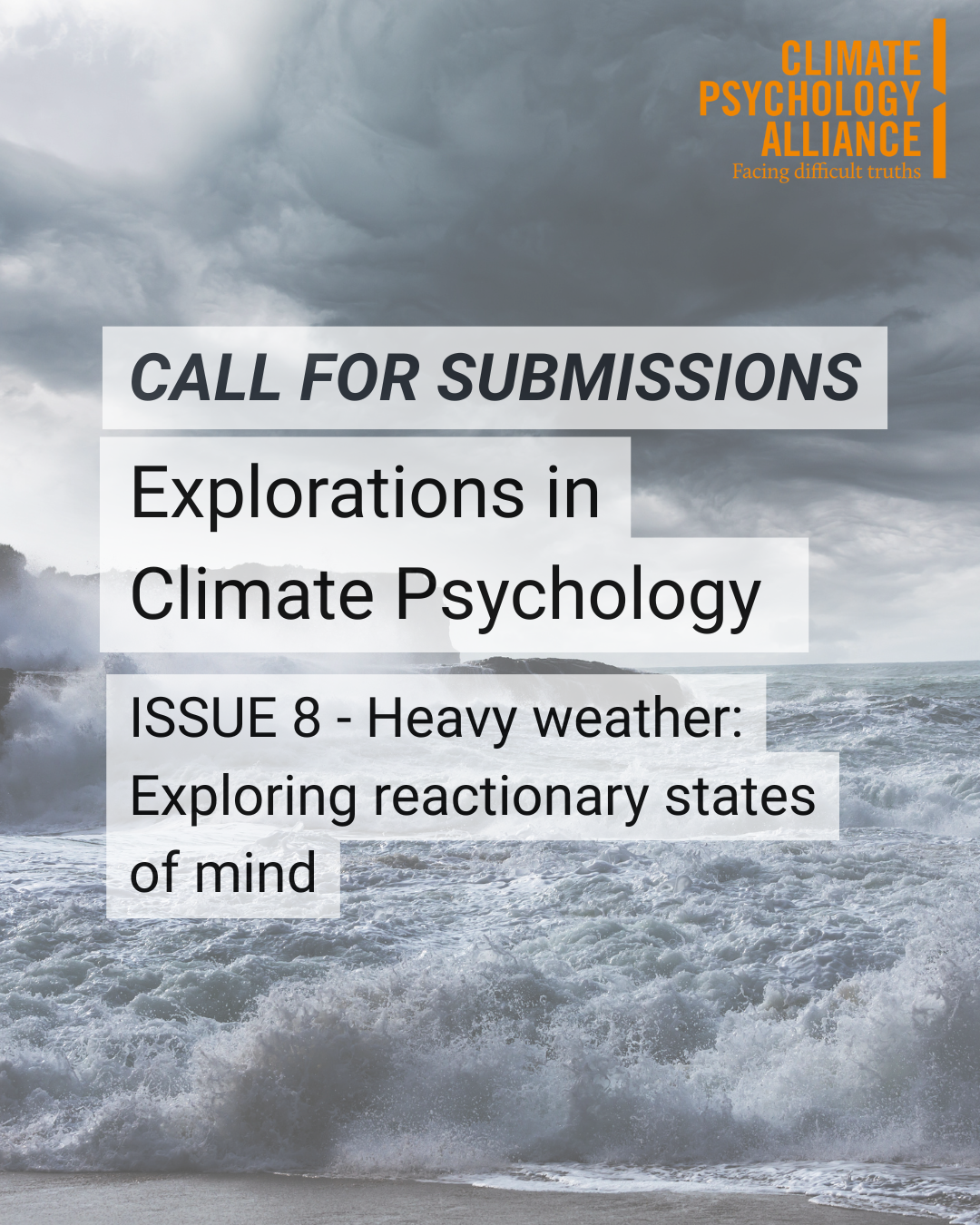Call for Submissions
Explorations in Climate Psychology Issue 8
Heavy weather: Exploring reactionary states of mind
We face times characterised by extreme polarisation and conflict. The electoral success of Trump and other populist and authoritarian governments across the world has led to the removal of environmental policies and a doubling down on limitless growth. Climate change is denied or seen as solvable through building bunkers, leaving the planet and other exclusionary tactics.
Although fascism can be a divisive term, Dunt and Lynskey in their exploration of the origins of historical fascism argue:
“At heart what fascism became was both a substitute religion and a conspiracy theory founded on an apocalyptic myth of a decisive battle between good and evil” Ian Dunt and Dorian Lynskey
We might see in this psychological pattern a regression to a more paranoid, superstitious and aggressive state of mind that views climate change as a signal of a necessary apocalypse in which the strong or special will be redeemed.
Others point out the contradiction between the deep core of liberal and postmodern values on inclusion and equality and the increasingly unequal social reality we live in, a contradiction which fosters resentment. Taken to its extreme, liberalism can encourage a deep suspicion of all power structures. Add to this our own therapeutic culture’s emphasis on subjective truth and perhaps we are left with a power vacuum and a post truth world where the strongest feelings become king. As Wilber writes of reactionaries:
“Everywhere you are told you are fully equal and deserve immediate and full empowerment. Yet everywhere you are denied the means to achieve it. You suffocate, you suffer and you get very, very mad." Ken Wilber
This edition of Explorations will explore reactionary states of mind. We are interested in submissions that explore how environmental thinking can create boundaries of inclusion and exclusion and how by understanding the shadows we cast, psychological thinking can be of benefit in facing our current crises. We also welcome submissions that discuss remedies, ways of working and possibilities that allow us to move beyond binary and polarised thinking.
Submissions in any written form, including short stories and poetry, as well as art will be considered. Answering some of the following questions if you so wish:
- What characterises reactionary states of mind?
- What is being reacted to with such violence?
- How can climate psychologists understand and work with these emotional responses that seem to have become easy targets in politics?
- What kind of shadow does the environmental movement cast?
- How does it reclaim its sense of leadership in an atmosphere characterised by suspicion of structures of power?
- What kinds of approaches, practical, theoretical or creative can we offer to individuals, groups and communities?
Please send submissions to Toby Chown (


